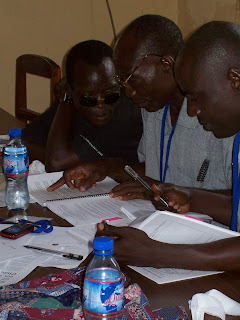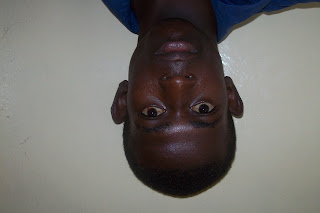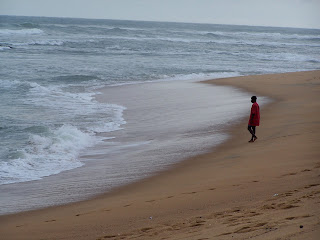
Day 6 of the workshop consisted of hands on games and activities, demonstrating how social skills and peace making skills can be taught through different learning modalities. For students who are deaf, or even most students, learning through movement, group discussion, and problem solving activities can be motivating, engaging, and a concrete way to learn abstract ideas and a great way to practice new skills.


Some of the games and ideas that were used throughout the workshop were taken from the book "Part Of The Group: Games That Increase Social Understanding" by M.W. Lou, E.S. Carlson, S.M. Gage, and N. Moser. These games focused on group work, communication, and leadership building. The most important part of the activities is the discussion after the completion of the activity. The students are allowed to complete the activity on their own (after some instruction) with some guidance from the teacher, the students learn how to solve problems on their own and how to effectively communicate to one another. The discussion allows the teacher to summarize what the students did and see if the students are able to recognize the learning points of the activity; providing an opportunity for reflection and discussion on relation of activity to real life.
The participants enjoyed "playing around" and were able to witness the potential of using hands on activities in their own classroom. The day also allowed the teachers to prepare short lessons using the activities to be taught the last day of the workshop.
___________________________________________

My time in Liberia in 2008 consisted of visiting various schools for the Deaf in Monrovia, visiting villages, completing workshops with teachers, and occasionally teaching the students at the Hope for the Deaf school. More often than teaching, I was able to just hang out with the students of the school. I enjoyed spending time with the younger students, reading children's' books that I had
brought-looking at the pictures and witnessing the excitement they had when they learned a new work or sign.
This time, in 2010, I went at a time when school was not in session. Therefore, I was not able to see most of the students that I grew to love two years before. While I did see a lot of the older students since some of them lived nearby and were able to travel without supervision, I was not able to see the younger students, including the ones pictured. I asked the Principal if there could be a day that all the younger students could come to the school so that I could see them once again. He obliged and was able to send out invitations to families to bring their children. It was a great afternoon. Some of the students had grown so much in the past two years. Though some were shy at the beginning, they quickly felt comfortable around me again and wanted me to watch them dance, jump rope, play football, and answer all the questions they had. For most of the students, this was a time to gather with other students who were deaf and to communicate in their natural language, something that does not always happen at home with their families.

The time was too short, and though the students and myself were not yet tired of chatting, they had to go. It was another sweet moment that I will forever cherish. I was recently surprised to receive many letters from the students, brought over from a friend who recently traveled to the country. It is the first correspondence that I have had with any of the students while in the States. Due to the cost, they do not have access to phones to text or to computers to send emails, they only means of communicating across distances for Deaf people in Liberia. Between 2008 and 2010, I had no contact with the students, so these letters were gratefully received. Hopefully I will be able to have more opportunities to communicate with the students in the future.





 On the third day of the workshop, we discussed in depth the causes of conflict. The participants were able to make the connection between unmet basic needs and conflict, as well as how one handles conflict, which can either be in a positive way or a negative way. Though conflict (a disagreement) may be inevitable in life, it is the way one deals with conflict that will produce a positive or negative consequence. The participants also learned about various conflict resolution techniques through role plays and discussion.
On the third day of the workshop, we discussed in depth the causes of conflict. The participants were able to make the connection between unmet basic needs and conflict, as well as how one handles conflict, which can either be in a positive way or a negative way. Though conflict (a disagreement) may be inevitable in life, it is the way one deals with conflict that will produce a positive or negative consequence. The participants also learned about various conflict resolution techniques through role plays and discussion.






















